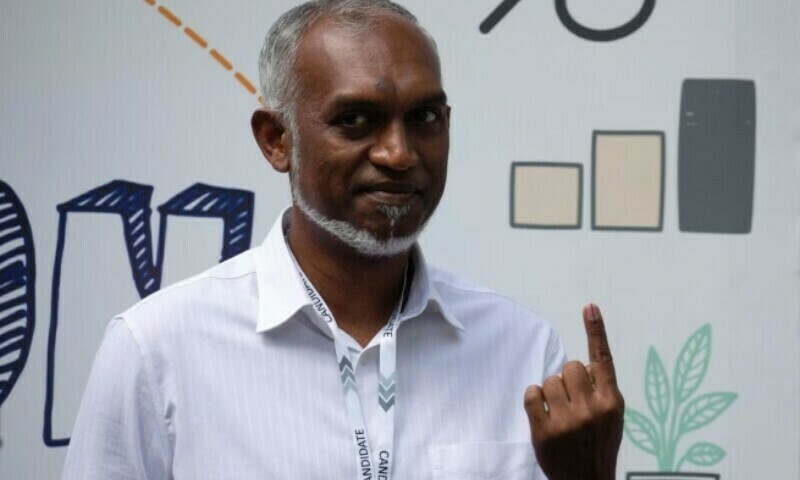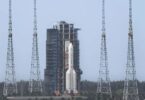The president-elect of the Maldives, Mohamed Muizzu, has marked his victory with a pledge to end the foreign military presence in his small but strategically placed atoll nation. Mr. Muizzu told his supporters during his first public appearance after winning a crucial election runoff, that his government will send back Indian troops currently stationed in the South Asian nation. The newly elected Maldives leader claimed to be pro-Maldives and vowed to be friends with those states and entities who respected and obeyed his pro-Maldives policy during his term in office.
The Republic of Maldives, an archipelago nation in South Asia, had been a battleground between two of its powerful neighbours People’s Republic of China (PRC) and Modi ruled India over the past decade. Both Beijing and New Delhi had been in a close contest to install their like-minded government in a tiny but strategically most important nation in the Indian Ocean region which is next to globally vied Indo-Pacific Oceans. Interestingly, Both China and India invested massively in the tiny neighbouring nation in pursuit of their political and strategic objectives in the past years. Under President Abdullah Yameen, who enjoyed good relations with Beijing, Maldives received more than one billion in loans from China for the construction of historic bridges to connect Capital Male with the airport island and other suburb localities near Federal territory. Interestingly, the Maldives growing engagement with China especially in infrastructure development and economic cooperation raised concerns in New Delhi, which in turn provided Male with $ 100 million in aid and about a $ 400 million credit line for the construction of a 6.7 km long bridge to connect Capital Male with the Island of Villingili. India also provided Maldives with 2 helicopters and a reconnaissance aircraft for aerial surveillance of its territory while 75 Indian soldiers/ technicians are currently deployed in Maldives to maintain and operate those aeroplanes. Historically, New Delhi enjoyed massive influence during the tenure of President Ibrahim Mohamed Solih from 2018 to October 2023, until an anti-India politician took the lead in the nationwide election on September 30.
In fact, the geopolitical competition between India and China has the potential to impact the stability of the Indian Ocean region, including the Maldives, Nepal, Sri Lanka, Myanmar and Bangla Desh. Pakistan is already suffering from the worst repercussions of a global tussle between Beijing and the United States. The Maldives has witnessed political instability and power struggles in recent years, leading to fluctuations in its foreign policy. This volatility has occasionally strained its relations with India, as both countries navigate the complex domestic politics of the Maldives.
The recent election in the Archipelago nation had been contested on Indian and Chinese factors. The world usually looks Maldives election as competition between pro-India and pro-China political groups who have bisecting policies and diverging interests. The new President-Elect Muizzu won the recent election on the India-out slogan, with the sole agenda of expelling Indian troops from his nation that had been the core driver of its election campaign throughout the past months.
Realistically, the ongoing political tussle between major powers and their regional supporters has caused an undesirable situation in the entire region. The third world developing nations have been plunged into a unique quandary where their economic, trade and political cooperation with either party is being viewed with a biased lens by the opposing bloc, who intentionally endeavours to sabotage those relations which are otherwise most crucial for national development and regional growth. The tiny state of Maldives does not afford animosity from any of its powerful neighbours including India and China. Unfortunately, the leaders try to steer their politics on foreign policy instead of domestic problems, economic issues and the well-being of the public. Presently, Maldives’ politics revolve around India-out, China-in and China-out India phenomena which is surely damaging the national unity as well as economic stability in that country. On the other side, the belligerent nations used to station their troops in other countries to consolidate their influence which often becomes counterproductive and causes humiliation instead of flourishing military diplomacy. Earlier, New Delhi sent its troops to Sri Lanka in 1989 that were expelled by Sri Lankan President Premafasa just after one year, while it would be another humiliation of the Indian military at the hands of another neighbour. Hopefully, Indian Lok Subha would learn a lesson from those experiences and would not repeat failed attempts of military diplomacy any time in future.







